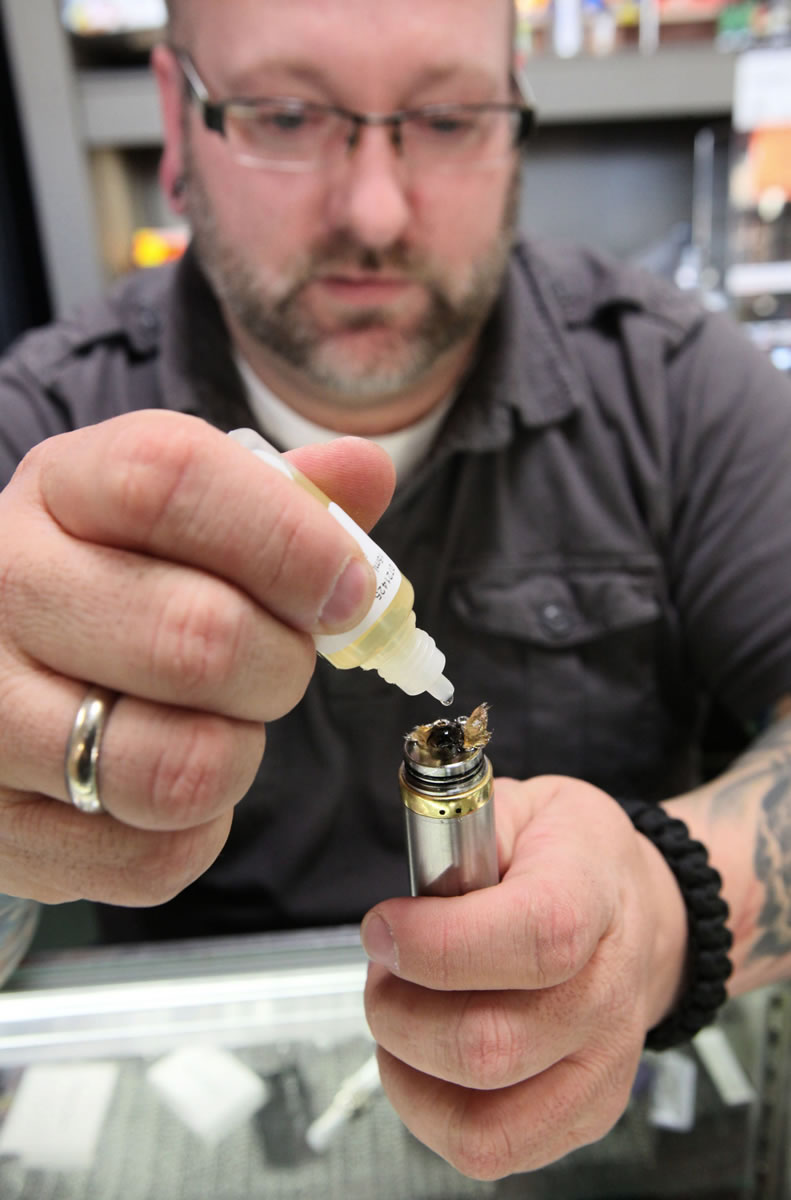The surging popularity of electronic cigarettes is spurring growth at two Milwaukee-area companies that have emerged as important producers of the key ingredient, and is creating opportunity here and elsewhere for storefront entrepreneurs.
The local participants have jumped into a market that some believe will eclipse that of traditional smokes within a decade.
“This is one of those few times where you see a brand new industry, and it’s amazing,” said Christian Berkey, founder and majority owner of Hartland’s Johnson Creek Enterprises LLC, which describes itself as the country’s largest manufacturer of the flavored, nicotine-laced liquids that are at the heart of electronic cigarettes.
But it’s also an industry that soon could change dramatically.
To this point, it’s been more or less the Wild West, with production and sales totally unregulated. Now, though, the U.S. Food and Drug Administration is poised to step in with as-yet undisclosed rules under its authority to oversee tobacco-derived products.
That could shake up the business models of the Internet-based vendors and tiny, home-based juice-makers that have sprung up over the last few years.
It could even lead to an effective ban on e-cigarettes — something industry observers discount as a realistic possibility.
But regulations also could solidify the positions of firms, such as Johnson Creek Enterprises and Wauwatosa’s Securience LLC, that already have made the move from basement to production lab.
“Regulations will, in general, be good for our particular business,” said Don Muehlbauer, owner of Securience, which says it, too, is among the nation’s biggest manufacturers of e-cigarette liquids. “They will drive out the little players.”
E-cigarettes are battery-powered devices with a heating coil that turns a nicotine-containing liquid — the stuff Johnson Creek and Securience make — into a vapor the user inhales.
“Vaping” generally is cheaper than smoking and, advocates say, safer because it doesn’t produce the tars and many of the harmful substances found in cigarettes.
Critics, however, say the vapors contain dangerous chemicals, and that research on e-cigarettes is needed. The U.S. Centers for Disease Control earlier this year said that while the products “appear to have far fewer of the toxins found in smoke compared to traditional cigarettes, the impact of e-cigarettes on long-term health must be studied.”
Earlier this year, CitiGroup labeled e-cigarettes one of 10 disruptive technologies and ideas capable of creating new markets. Wells Fargo Securities analyst Bonnie Herzog, meanwhile, labels e-cigarettes “a game changer.”
Herzog estimates 2013 retail sales of e-cigarettes at $1.8 billion. That’s a small fraction of the $81 billion for conventional cigarettes, but the e-cigarette sales have tripled in just two years.
And Herzog — an e-cigarette bull — estimates that retail sales of the two products will draw roughly even by 2023, with revenue to manufacturers of e-cigarettes jumping in front even earlier.
“The potential’s huge,” said Dan Bartholow, general manager at Securience, which employs not quite 50 people — among them a chemist with a doctorate, chemical engineers and food scientists — in space at the Milwaukee County Research Park.
Securience, started by Muehlbauer four years ago on a picnic table in his basement with help from his son, a chemical engineer, sells juice in everything from half-ounce bottles to 55-gallon drums.
“We stock thousands of gallons of this stuff, which in the e-liquid world translates to a few million packs,” Bartholow said.
Berkey expects to hire another 20 over the next few months and to double the firm’s footprint by buying the building it now leases. He also envisions opening a second, highly automated plant in Waukesha sometime next year.
“Things have taken off in a way none of us ever imagined it would,” he said.



